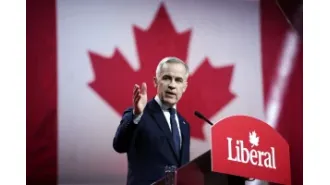Many young students are attending school with empty stomachs, which is a concern.
Teachers are spending money to provide food for their students.

According to a survey conducted by the National Foundation for Educational Research charity, about one-third of primary school teachers have noticed an increase in the number of students arriving to class hungry. This is a concerning trend, as it means that more and more children are going to school without having had a proper meal. As a result, teachers are having to reach into their own pockets to help these students, whether it's by providing them with some food or helping them get appropriate clothing for school.
The survey also revealed that many teachers have noticed an increase in the number of students who come to school without proper clothing, such as uniforms or a winter coat. This is a clear indication of the impact that poverty and the rising cost of living is having on children and young people. Daniel Kebede, the general secretary of the National Education Union, expressed his concern over this issue, stating that it seriously affects children's ability to concentrate and learn during the school day.
It is reported that more children than ever are relying on foodbank parcels, with over a million distributed in a record-breaking year. This has led to nearly one in five primary school teachers and a significant number of secondary school teachers spending their own money to buy food and clothes for their students. These findings reflect the widespread budget cuts in schools, leaving teachers with no choice but to spend their own money to ensure their students are clothed and fed.
The survey also revealed that many senior leaders in schools have had to make difficult trade-offs due to budget constraints. In fact, one in ten senior leaders stated that they made no cuts to provision this year due to cost pressures. The survey, which included the views of 884 teachers and 398 senior leaders, was conducted in mainstream state primary and secondary schools in England in March.
Jude Hillary, the NFER's co-head of UK policy and practice, warned that this high level of need could become a persistent and entrenched challenge. He stated that the rising cost of living is one of the significant cost pressures leading to schools having to make difficult trade-offs in their core provision, such as staffing and teaching. As a result, teachers are going above and beyond to meet their students' pastoral needs, even using their personal funds to do so.
To address this growing problem, the NFER is calling for an extension of eligibility for free school meals. Currently, one-third of students receive free school meals, which has doubled since 2010. The NFER is also urging for targeted funding to help schools improve student wellbeing. Pepe Di'Iasio, the general secretary of the Association of School and College Leaders, expressed his concern over the fact that many young children are arriving at school without basic necessities. He also recognized the dedication and sacrifice of teachers who are going above and beyond to support their students.
In response to these findings, a Conservative Party spokesperson stated that they are committed to giving every child the best start in life, regardless of their background. They have doubled the number of children receiving free school meals since 2010 and have also climbed up international education rankings. However, the Conservative government was forced to extend free school meal provision during the Christmas holidays after a campaign by Manchester United footballer Marcus Rashford in 2020. This highlights the need for continued efforts to address the issue of child poverty and hunger in schools.










